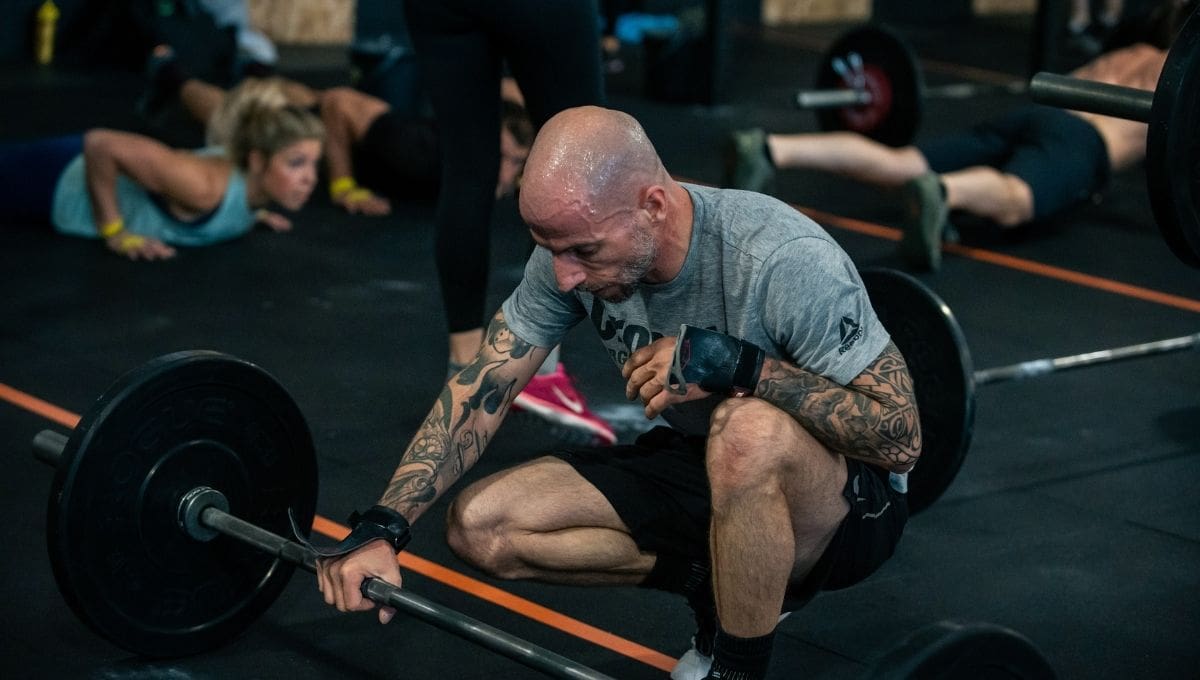You probably heard of many of the topics you are about to see below: full range of motion, lifting straps, detoxing, BCAAs, or even toning. These are hot topics that, most of the time, normal people have no clue about what is good and what is just overhyped. Luckily, we have Jeff Nippard and Dr. Layne Norton to guide us through it.
Jeff Nippard is a natural professional bodybuilder and fitness coach who shares tips and training programs on his YouTube channel. He also has a BSc in biochemistry/chemistry and is passionate about science.
Layne Norton has a BS in biochemistry and a PhD in nutritional sciences. He is also a 3x national powerlifting champion and a renowned author who published books about fat loss and other themes.
So what are the topics they covered? Check out below.
 Source: Anastasia Shuraeva on Pexels
Source: Anastasia Shuraeva on PexelsExplaining Controversial Fitness Topics
The 13-minute video has both Nippard and Norton telling the viewers what each of them thinks of a specific fitness-related topic. It ranged from training to nutrition, supplements, and other hot-trending topics. See the full list below of what they talked about.
- Training to failure
- Sumo deadlifts
- Full range of motion
- Powerlifting for bodybuilding
- Lifting straps
- Post-workout anabolic window
- Liver/Organ meats
- Detoxing
- Kiwi fruit
- Eating clean
- Turkesterone
- BCAAs
- EAAs (Essential Amino Acids)
- Creatine monohydrate
- Testosterone boosters
- Ashwagandha
- Ice baths
- Sauna
- Fasted cardio
- Bodyfat spot reduction
- “Toning”
As you can imagine, some of these topics are very debatable and controversial. Needless to say, Nippard and Norton did not have a consensus on a number of them, but each of them showed their argument and why something is overrated and why something is underrated.
Check out the entire conversation in the video below.
Timestamps of the video divided into categories:
0:00 – Intro
0:26 – Training Topics
3:16 – Nutrition Topics
6:03 – Supplementation Topics
9:55 – Hot Fitness Topics
12 Lies You Still Believe About Fat Loss
5 Unusual Training Systems You Must Try It Now
Do This Bodyweight Test To Know Your Strength Level
There are numerous benefits of working out, both for your physical and mental health. Here are some of the main benefits:
- Improved physical health: Regular exercise can help you maintain a healthy weight, build muscle mass, increase your stamina and endurance, and reduce your risk of chronic diseases such as heart disease, diabetes, and cancer.
- Boosted mood: Exercise has been shown to release endorphins, which can help reduce stress, anxiety, and depression, and boost your overall mood.
- Better sleep: Regular exercise can improve the quality of your sleep, helping you fall asleep faster and stay asleep longer.
- Increased energy: Exercise can help improve your energy levels and reduce fatigue by boosting circulation, improving oxygen flow, and stimulating your metabolism.
- Enhanced cognitive function: Exercise can help improve your memory, focus, and cognitive function by increasing blood flow to the brain and stimulating the growth of new brain cells.
- Increased self-confidence: Regular exercise can help improve your self-esteem and confidence by making you feel stronger, healthier, and more in control of your body.
- Social benefits: Exercise can be a great way to meet new people, make friends, and engage in social activities, which can help improve your overall sense of well-being.
Overall, working out can have a significant positive impact on your physical and mental health, and can help you lead a happier, healthier, and more fulfilling life.
 Source: Andrea Piacquadio on Pexels
Source: Andrea Piacquadio on PexelsHow To Force Muscle Growth – 5 Methods To Accomplish That
Junk Volume Weight Training – What is it and Why Must You Avoid it
Perfect Push-Up Workout for Every Fitness Goal
Why You Cannot Outrun a Bad Diet
There are many reasons why you should do strength training as part of your overall fitness routine. Here are some of the key benefits:
- Builds muscle: Strength training is an effective way to build and maintain muscle mass. This can help increase your metabolism, which can help you burn more calories throughout the day.
- Increases strength and endurance: By challenging your muscles with resistance exercises, you can increase your strength and endurance, which can make it easier to perform daily tasks and activities.
- Reduces the risk of injury: Strong muscles and joints are less likely to be injured during physical activity, which can help reduce your risk of injury and improve your overall physical performance.
- Improves bone density: Strength training has been shown to increase bone density, which can help reduce the risk of osteoporosis and fractures.
- Enhances overall physical performance: Strength training can improve your overall physical performance, whether you’re an athlete looking to improve your performance in a specific sport, or just looking to perform daily tasks with more ease.
- Boosts confidence and self-esteem: As you see progress and improvements in your strength and physical abilities, it can boost your confidence and self-esteem.
- Improves quality of life: Strength training can improve your overall quality of life by making it easier to perform daily tasks, reducing the risk of injury, and improving your overall physical health and well-being.
Overall, incorporating strength training into your fitness routine can have numerous benefits for your physical and mental health, and can help you live a happier, healthier, and more active lifestyle.
 Source: Dollar Gill on Unsplash
Source: Dollar Gill on Unsplash14 Tricks On How To Lose Belly Fat Effortlessly
The Worst Nutrition Mistakes Every Lifter Makes
How often you should work out depends on several factors, including your fitness goals, current fitness level, and the type of workouts you’re doing. In general, the American Heart Association recommends that adults aim for at least 150 minutes of moderate-intensity aerobic exercise or 75 minutes of vigorous-intensity aerobic exercise per week, along with at least two days of strength training exercises per week.
Here are some general guidelines for how often to work out based on your fitness goals:
- For general health and fitness: Aim to exercise most days of the week, for at least 30-60 minutes per day. This can include a combination of aerobic exercise, strength training, and flexibility exercises.
- For weight loss: Aim to exercise most days of the week, for at least 30-60 minutes per day. This should include a combination of aerobic exercise and strength training, with a focus on creating a calorie deficit through a combination of exercise and diet.
- For muscle building: Aim to do strength training exercises at least two days per week, targeting all major muscle groups. You can also include aerobic exercise and flexibility exercises as part of your routine.
- For athletic performance: The frequency and intensity of your workouts will depend on your specific sport and fitness goals. Consult with a coach or trainer to develop a customized training plan.
Remember, it’s important to listen to your body and avoid overtraining, which can lead to injury or burnout. Start slowly and gradually increase the frequency and intensity of your workouts over time.
How To Make The Biggest Visual Change To Your Body Quickly
Top Metcon Exercises to Add To Your Workouts
Beginners Guide to a Six-Pack – Eating and Training Tips
7 Warning Signs You Are Eating Too Much Sugar
The Perfect Workout to Lose Weight
What Happens To Your Body When You Fast for 24 Hours?
Image Sources
- Man and barbell (2): Anastasia Shuraeva on Pexels
- Gym ready: Andrea Piacquadio on Pexels
- Barbell curl: Dollar Gill on Unsplash
- CrossFit gym: Bastien Plu / Unsplash
